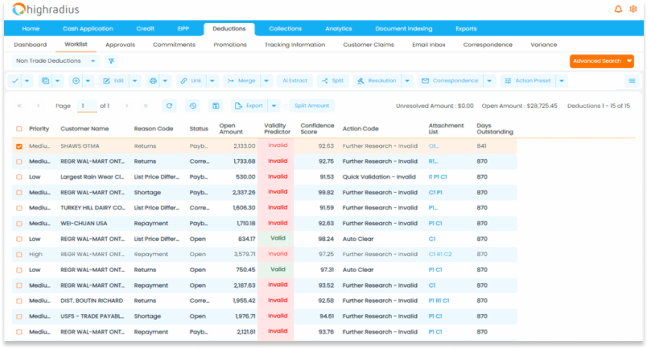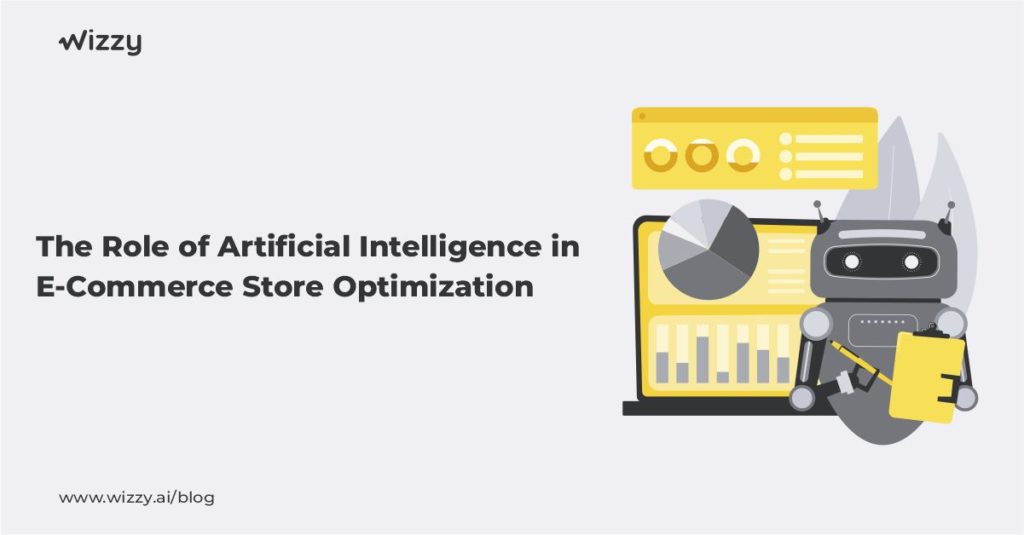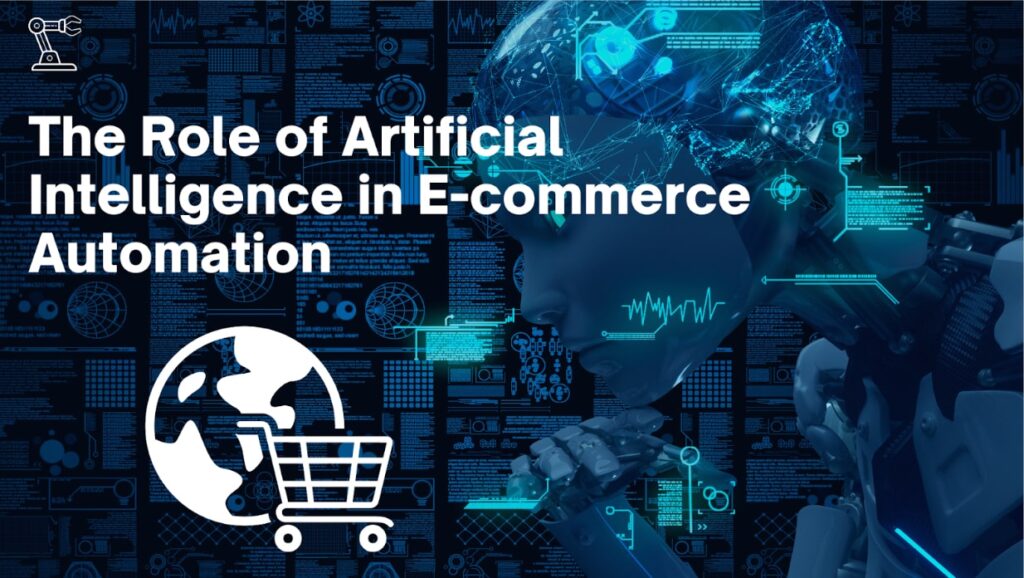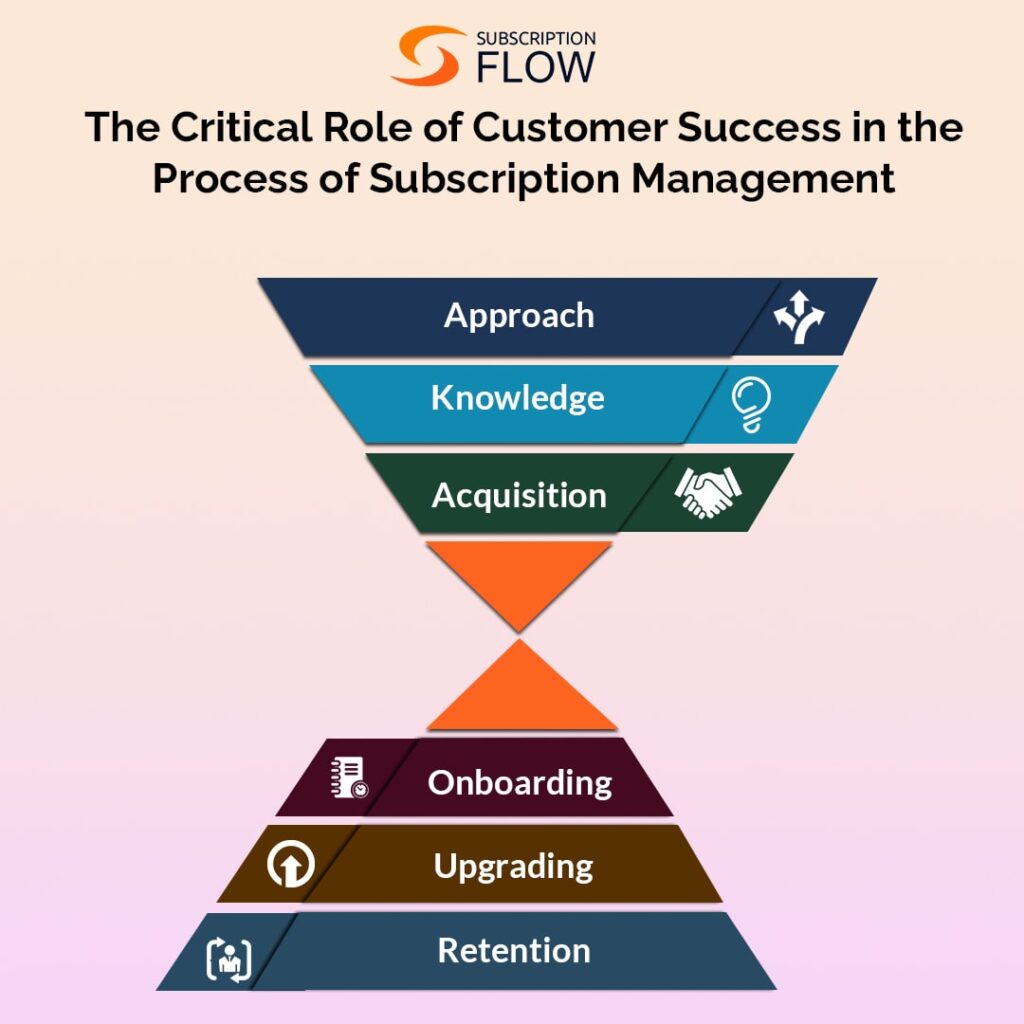Introduction: The Digital Boom and AI in E-commerce
Welcome to the new age of e-commerce where all things digital are intertwined with our business practices. With the digital boom, it’s almost impossible to think about e-commerce without considering Artificial Intelligence (AI). We are presently residing in a period known as the fourth industrial revolution, and AI is undeniably playing a pivotal role in transforming the way businesses operate online today.
Understanding the Importance of AI in the Modern E-commerce World
Talking about AI in e-commerce, it’s like stepping into a future where every customer’s need is accurately predicted, sales are sky-high, and customer service is exceptional. AI brings with it a plethora of benefits including improved customer satisfaction, better decision making, and overall operational efficiency which significantly improves the overall performance of an e-commerce business. With the help of machine learning algorithms and data interpretation, businesses can now offer personalized shopping experiences, driving more sales and ultimately improving the cash flow.
Unveiling the Correlation between AI Usage and Increased Cash Flow
In case you’re wondering how AI usage can increase cash flow in e-commerce, let’s dive deep into this. AI develops methods for automating tasks that would otherwise require human intelligence. For instance, Chatbots, powered by AI, can interact with customers just as a human would, addressing customer queries round the clock thus yielding a better conversion rate and customer loyalty. Similarly, AI-powered inventory management systems have replaced traditional inventory methods with automated solutions, thereby reducing costs and boosting revenues which directly leads to improved cash flow.
To put it simply, the integration of AI in e-commerce is not just a trend, it’s a requirement to survive the fierce market competition and maximize cash flow. It’s a journey that every e-commerce business keen on growth and profitability must undertake.
Maximizing Cash Flow: The Role of AI in E-commerce
When it comes to running an online business, one of the key challenges is managing cash flow. In this day and age, where technology is transforming every aspect of our lives, I’ve found that Artificial Intelligence (AI) holds significant potential in helping to maximize cash flow in the e-commerce landscape. From streamlining customer service operations to personalizing customer experiences, AI can truly become an entrepreneur’s best friend.
Utilization of Chatbots for Streamlined Client Support
First, let’s consider AI chatbots. Handling customer queries can be a daunting task that takes up substantial time and resources. Often, I’ve seen e-commerce businesses, particularly start-ups, struggling with this challenge. Enter AI chatbots.
Anticipating and resolving customer queries in real-time, AI chatbots can dramatically reduce the need for human intervention, ensuring seamless customer experiences. I can’t stress enough how this has not only improved efficiency but also significantly cut down costs, directly contributing to improved cash flows.
Implementing AI-Led Customer Personalization for Increased Sales
Next, let’s discuss AI’s role in personalizing customer experiences. As an ecommerce business owner, I realise it’s not just about selling a product, it’s about understanding your customer’s preferences, their buying patterns and offering them exactly what they need.
AI provides incredible assistance in this domain. Empowered with predictive analysis, AI tools are capable of personalizing suggestions, anticipating customer needs, and even predicting future trends. Employing such tools, in my experience, can lead to increased sales, leading to healthier cash flows.
In essence, I truly believe AI has the potential to revolutionize e-commerce, contributing significantly towards improved cash flow, which is crucial for any online business’s survival and growth. So, it’s an avenue worth exploring.
Harnessing AI for Smart Inventory Management
In the wide world of e-commerce, cash flow is king, and Artificial Intelligence (AI) is the loyal gatekeeper. The role of AI in maintaining and maximizing cash flow is immense, especially when it comes to smart inventory management.
Take a moment to think about the unwanted situations caused by overstocking or understocking inventory. It’s a delicate balancing act that requires precision, insight and the right technology. Thankfully, AI paves the way toward efficient inventory stocking, assisting in sales predictions, cost-saving and most importantly, preventing cash flow issues.
Predictive AI Analysis for Efficient Inventory Stocking
My experience with AI has shown me that predictive analysis can be a game-changer for e-commerce businesses. With AI algorithms, businesses can accurately forecast future sales, allowing for more informed decisions about how much inventory to stock. By predicting consumer behavior, AI helps companies to have the right amount of products in hand, saving warehouse space and ultimately costs.
Reducing Overstock and Understock Situations with AI
But AI doesn’t stop there. A considerable part of inventory management is dealing with overstocks and understocks. Overstocking leads to tied-up cash and potential loss when items drop in value or become obsolete. Understocking, on the other hand, can result in lost sales and disappointed customers. AI, with its predictive capabilities, helps eliminate these issues. By analyzing past data, patterns and trends, AI can fine-tune inventory levels, reducing both overstock and understock situations.
In essence, AI systems provide incredible support in managing inventory more efficiently. Not only can they help save costs, but they can also boost sales and overall customer satisfaction by ensuring their desired products are always in stock – a win-win situation for every e-commerce business. So, don’t wait. Start harnessing the power of AI for smarter inventory management and better cash flow.

This image is property of www.tesorio.com.
Price Optimization Opportunities with AI
As a part of my journey in the realm of e-commerce, I have come across the abundant use of AI (Artificial Intelligence) in this growing field. One interesting aspect of AI that has caught my attention recently is its role in price optimization. This way of pricing not only enhances the customer experience but also creates opportunities to maximize cash flow in e-commerce.
Leveraging AI for Dynamic Pricing Techniques
One fantastic way I have seen AI work wonders in e-commerce is via Dynamic Pricing. To give you a bit of context, dynamic pricing is a technique where the prices of products or services change based on market conditions and customer behavior. AI, with its ability to analyze vast amounts of data in a short time, can make this process more efficient. It can track customer actions, market demand, and competition in real time, adjusting prices accordingly. The end result? Better profit margins and improved cash flow for your online business.
Maximizing Profit Margins through AI-Facilitated Pricing Strategies
The next big thing I want to talk about is how AI can facilitate pricing strategies for maximizing profit margins. One method I’ve noticed gaining popularity is price discrimination. AI can help identify customers who are willing to pay more for certain items based on their browsing history, purchase patterns etc. Alternatively, AI can also suggest promotions or discounts to customers who are more price-sensitive, thus preventing cart abandonment. The key is to utilize AI algorithms to extract, analyze and implement insights from the information at hand.
So, my experience in e-commerce has shown me that AI is not just changing the landscape of online retail but also offering ways to maximize cash flow. As AI technology continues to evolve, I believe it will open even more exciting opportunities for price optimization in the e-commerce sector.

This image is property of cdn.highradius.com.
In a digital-driven world, I have seen firsthand the significant impact that artificial intelligence (AI) has had on e-commerce. The online business landscape has transformed drastically are constantly seeking innovative ways to maximize cash flow.
AI’s Role in Streamlining Order Fulfillment
One of the areas that have seen a significant AI influence is in the order fulfillment process.
Easing the Order Fulfillment Process with AI
Indeed, my experience in the industry showed it’s no longer a hidden fact that AI is becoming the backbone of the e-commerce fulfillment process. Through robust machine learning algorithms, the complex process has become a walk in the park. With AI, there’s been a noted decrease in misplacements or order errors, which, in the long run, saves both time and money. Cases of misplaced or wrongly dispatched orders can negatively affect your bottom line and cause operational disruptions. Now, with the aid of AI, order tracking, and processing, is not much of a hassle as it once was.
Integrating AI and Logistics to Ensure Timely Deliveries
AI has also stepped into the logistics arena and is now playing a pivotal role in improving deliveries. For instance, there is AI-powered software out there that allows efficient route planning for delivery drivers, reducing delivery times significantly. Besides, the AI capabilities in predicting weather patterns or traffic issues also ensure that the delivery process runs smoothly and efficiently while maximizing profits.
There you have it, my instance on the topic. AI in e-commerce is no longer a luxury but a crucial asset to maximize cash flow in online businesses.
Fraud Prevention and Security Measures via AI
As we continue to see an increase in E-commerce, the need for efficient security measures has become necessary. AI has proven to be a game-changer in this regard, particularly in fraud prevention and transaction security.
Introducing AI-Based Fraud Detection Systems
AI and Machine Learning algorithms are technology’s modern sheriffs, safeguarding your business from potential fraud. They do so by leveraging historical and real-time data to predict and prevent future fraudulent transactions. The AI algorithms are adept at pattern and anomaly detection. They quickly identify unusual patterns of behavior that could signify fraudulent activity. With the high-speed processing capabilities of AI, these detections occur in real-time, preventing fraud before it happens. This kind of protective layer not only did boost my business transactions but also fostered trust among my customer base.
Heightening Transactional Security with Modern AI Implementations
Beyond fraud detection, AI also plays a pivotal role in enhancing transactional security across E-commerce platforms. For instance, AI technology can validate user identity by analyzing user behavior, ensuring the right individuals gain access to their respective accounts. It can also employ encryption techniques during transactions to keep sensitive financial information secure. This advanced level of security is something that attracted more global customers to my E-commerce platform and significantly increased my cash flow.
AI provides proactive fraud prevention and robust transactional security solutions, contributing significantly to the maximization of cash flow in E-commerce. As we continue to advance technologically, the role of AI in E-commerce is one that surely will continue to grow and transform for the better.

This image is property of wizzy.ai.
Sales Forecasting and Market Analysis through AI
You may wonder how Artificial Intelligence (AI) can improve e-commerce business performance. Well, it’s simple! AI drastically enhances sales forecasting and market analysis.
Leveraging AI Analytics for Accurate Sales Forecasting
One of the key factors impacting your cash flow is your ability to accurately forecast sales. Many businesses, though, often find this quite challenging. But here’s where AI alters the game. AI analytics can predict future sales by analysing previous sales records that can adjust and align with changing seasonal trends, customer demands, and market volatilities. It provides an edge by using machine learning algorithms to accurately forecast revenues, hence enabling businesses to manage their cash flow more efficiently.
Utilizing AI to Track Market Trends and Consumer Behaviour
Another fantastic tool AI offers e-commerce businesses is the ability to track market trends and consumer behaviour. AI can sift through vast amounts of data from different sources to identify shopping patterns, customer preferences, and trending products. This insightful data helps businesses adapt quickly to changes in market demand, leading to a boost in sales, and ultimately, better cash flow.
Remember, AI doesn’t just predict and react to market trends; it learns and improves over time. That’s the real beauty of implementing AI in your e-commerce journey. It’s not just about making quick profits; it’s about sustaining and improving your cash flow over a longer-term.
As technology advances, AI’s role in e-commerce is becoming more essential. Why maintain the status quo when you can maximize your cash flow and simplify your business processes with AI? It’s an opportunity you don’t want to miss. Embrace AI; it’s the future of e-commerce.

This image is property of technologyforlearners.com.
Driving Marketing Efforts with AI Technologies
In today’s fast-paced e-commerce industry, artificial intelligence (AI) is becoming a game-changer. For me, it’s an essential tool for maximizing cash flow and steering my online business towards success. AI technologies help optimize marketing efforts and enable personalized customer interactions, leading to improved sales and customer retention.
Personalized Marketing Campaigns Powered by AI
One of the ways I’ve harnessed AI in my e-commerce business involves developing personalized marketing campaigns. Using AI, I am able to understand my customers’ behaviors and trends. This allows me to create customized promotions and dynamic pricing tailored to individual customers. This personalization leads to higher conversion rates, maximizes revenue, and ultimately improves cash flow.
But it’s not just about creating personalized experiences. AI technology enables me to automate these tailored marketing campaigns, freeing up valuable time and resources that I can utilize elsewhere to grow my business.
Improving Customer Reach and Engagement through AI-Driven Marketing
Beyond personalization, another area in my e-commerce business where I’ve used AI is strengthening customer reach and engagement. AI-driven tools can analyze online behavior, helping me identify potential customers and retarget past customers. Using this data, I enhance my customer reach through AI’s predictive analytics and improve engagement by offering products and services that are in line with the consumers’ preferences.
Together, these methods maximize customer value and drive cash flow. Hence, for me, AI is no longer just a fancy term but a necessity in my e-commerce strategy. It enables me to leverage data and automation, grows revenue, and empowers my business in this competitive market. AI is here to stay in e-commerce, and the sooner we adapt, the better we will be at maximizing cash flows.
AI Integration Challenges in E-commerce
In this highly digitalized era, e-commerce platforms are constantly seeking ways to optimize their operations and improve their overall cash flow. Incorporating Artificial Intelligence (AI) into business strategy presents a highly effective solution. However, the path to successful AI integration is not always a seamless one.
Understanding the Potential Setbacks of AI Implementation
Before we venture further into this promising yet complex realm, it’s important to understand the potential challenges ahead. For one, the whole process is heavily reliant on data. Poor quality or insufficient data can hamper the effectiveness of AI. Moreover, the technology necessitates considerable initial and ongoing investments, which can cause strains on a company’s financial resources, especially for startups and SMEs. Beyond the budget, integrating AI into existing systems is another challenge. Managing the transition and ensuring that AI-systems are compatible with existing technologies is integral to successful implementation. At times, businesses may lack the necessary expertise, leading to operation inefficiencies and other bottlenecks.
Strategic Solutions to Overcome AI Integration Hurdles
Despite these hurdles, strategic solutions are available to optimize this transformative process. Looking at data management, it’s crucial to maintain robust data collection and analysis systems to feed the AI technology accurate and sufficient information. To handle the financial aspects, businesses can consider collaborating with tech companies offering AI solutions at more manageable costs. With regard to system compatibility, thorough research, careful planning, and expert consultation are essential to ensure seamless integration. A successful blend of AI and e-commerce can result in significant improvement in operational efficiency, customer satisfaction, and eventually, maximizing the coveted cash flow.
Remember, the journey may be challenging, but with a strategic approach and determination to innovate, leveraging AI in e-commerce can truly become a cash flow game-changer!

This image is property of www.subscriptionflow.com.
Future Trends: Role of AI in E-commerce
A new era of E-commerce is emerging, with AI playing a pivotal role in transforming the landscape. As an active participant in the digital commerce arena, I am thrilled to share insights on the future trends where AI might lead us, and how it can help to maximize cash flow in e-commerce businesses.
Predicting Future Advancements in AI and E-commerce Integration
Artificial Intelligence, with its limitless potential, is expected to bring incredible advancements in e-commerce. We are already witnessing AI-driven personalized recommendations, customer service chatbots, and even AI-based stock management. But this is just the tip of the iceberg.
On the horizon, I foresee AI analyzing local and global market trends, customer’s past shopping habits, seasonal demands, and socio-economic dynamics to forecast sales. This deep predictive analysis should help in better inventory management and cost savings.
Furthermore, AI can enable highly personalized shopping experiences, pushing up average basket sizes and revenue. Imagine AI suggesting products specifically curated for customer’s taste, budget, and occasion.
Envisioning the Impact of AI on Future E-commerce Cash Flow
The primary objective of any business is to increase its cash flow, and e-commerce is no different. Effective cash flow management is the key to survival and growth, especially in today’s weathering economic conditions. Here’s where AI can play a significant role.
AI’s potential to predict consumer behavior would directly impact sales and the cash flow of businesses. With optimal pricing strategies derived from AI algorithms, firms can maximize profits. Tight control over inventory with sophisticated AI tools can alleviate cash outflows. I also predict AI driving increased customer retention and repeat purchases, thereby accelerating cash inflows.
From predictions to business operations, AI in e-commerce is not just a possibility for the future. It’s happening now, and it’s evolving fast. Maximizing cash flow with AI in E-commerce certainly looks promising and exciting! The time to understand and embrace it is now.
Case Studies
Success in any business venture often requires learning from those who have gone before. In this post, we will dive deep into some case studies of AI implementation in e-commerce businesses. This will provide a clearer understanding of how to maximize cash flow via AI.
Examining Successful AI Implementations in E-commerce
Let’s start by examining AI implementations in e-commerce that have stood out for their effectiveness in enhancing cash flow. How exactly did they accomplish this?
Firstly, I’ll use the example of Amazon, a global giant in e-commerce. They employ an AI-powered recommendation system that analyses individual consumer behaviours and preferences. This AI-driven strategy has significantly boosted their sales and hence maximized their cash flows.
In a different approach, eBay another industry leader uses AI to improve their customer service. They have an AI-powered chatbot that handles customer inquiries 24/7. The enhanced customer service experience has resulted in an increase in both sales and returning customers, which has substantially contributed to improved cash flows.
Learning from Real-World Examples of AI’s Impact on Cash Flow
Learning from these real-world implementation of AI, it’s clear that AI can significantly enhance cash flow. The key is in incorporating AI in a way that enhances the overall customer experience, whether it’s through personalized product suggestions or round the clock customer service.
However, remember that while these case studies provide valuable insights, the application of AI should be tailored according to your specific business needs. This ensures the best possible returns on your investment in AI technology.
These real-world examples are essential in showing us the unlimited potential AI brings to e-commerce. They allow us to see the practical advantages of AI, not just in theory, but how it can be monetized to maximize cash flow in real businesses.
Conclusion: Balancing AI and Cash Flow in E-commerce
As we’ve explored throughout this post, the integration of artificial intelligence (AI) in e-commerce is an exciting development that holds a lot of potential for businesses of all sizes. I have seen firsthand the vast improvements AI can bring in terms of customer service, inventory management, and demand prediction – all crucial aspects of effectively managing cash flow.
Appreciating the Advantage of AI Integration in E-commerce
By incorporating AI, businesses can unlock greater accuracy and efficiency. Take chatbots as an example. Chatbots can handle customer inquiries round the clock, freeing up human resources for more complex tasks, thereby saving on operational costs. AI’s ability to analyze huge volumes of data also contributes to enhanced inventory management, reducing the chances of overstocking or understocking – a key influence on cash flow.
In addition, AI analytics can provide valuable insights into consumer behavior, empowering businesses to make data-driven decisions that positively impact sales and, subsequently, cash flow. In essence, through AI integration we can target our customers more effectively and efficiently, providing them with the personalized experience they have come to expect from online shopping.
Exploring the Future Possibilities of AI-Driven Cash Flow Growth
Looking ahead, the possibilities for AI in e-commerce are thrilling. With continuous advancements in AI technology, predictive analytics will become even more accurate, the personalization of customer experiences will reach unprecedented levels, and operational efficiency will see further improvements. In conclusion, leveraging AI will help e-commerce businesses not just survive, but thrive in the increasingly competitive market space, boosting cash flow and driving sustained growth.
As we embrace AI and continue to unlock its potential, let’s ensure we strike a balance to maintain human touch where it matters most—all while maximizing our cash flows in this dynamic e-commerce landscape.
